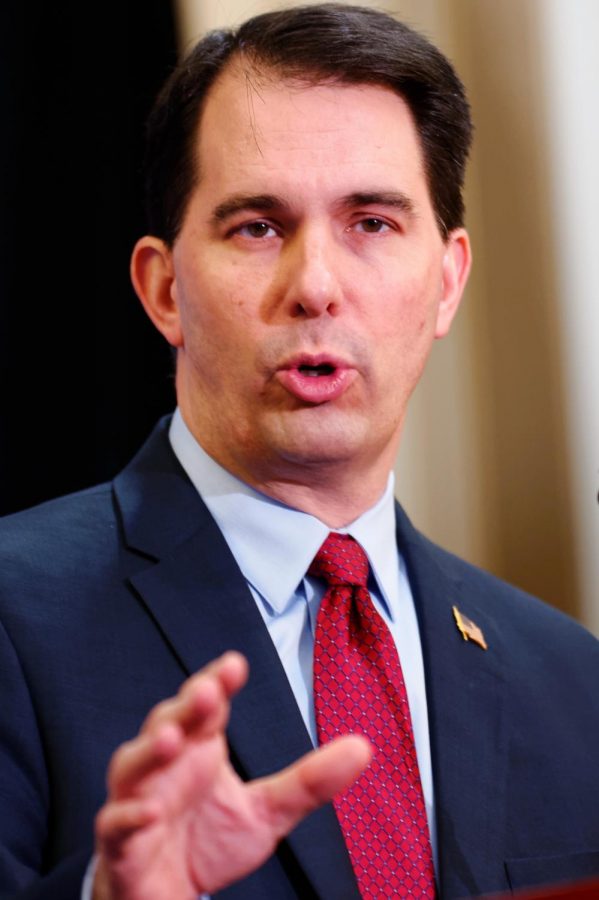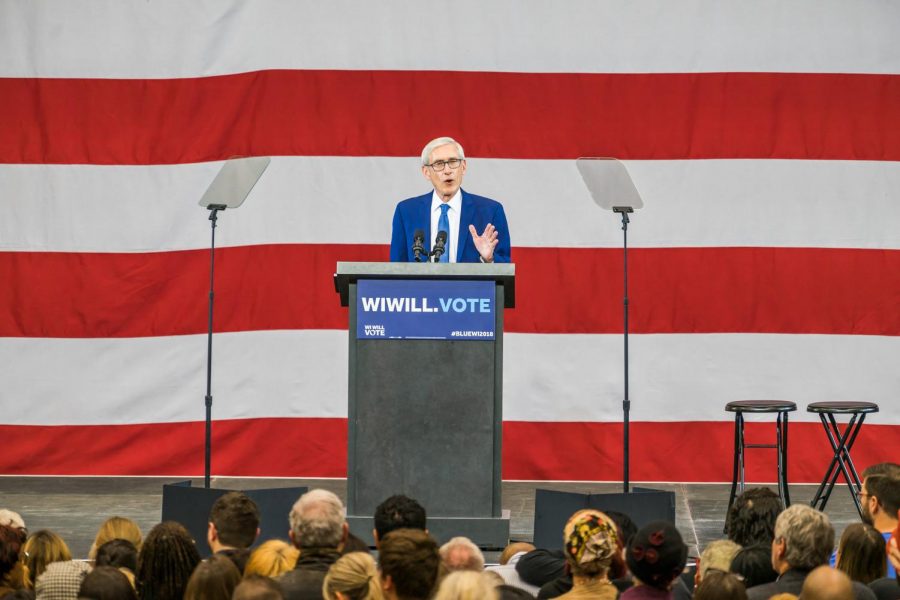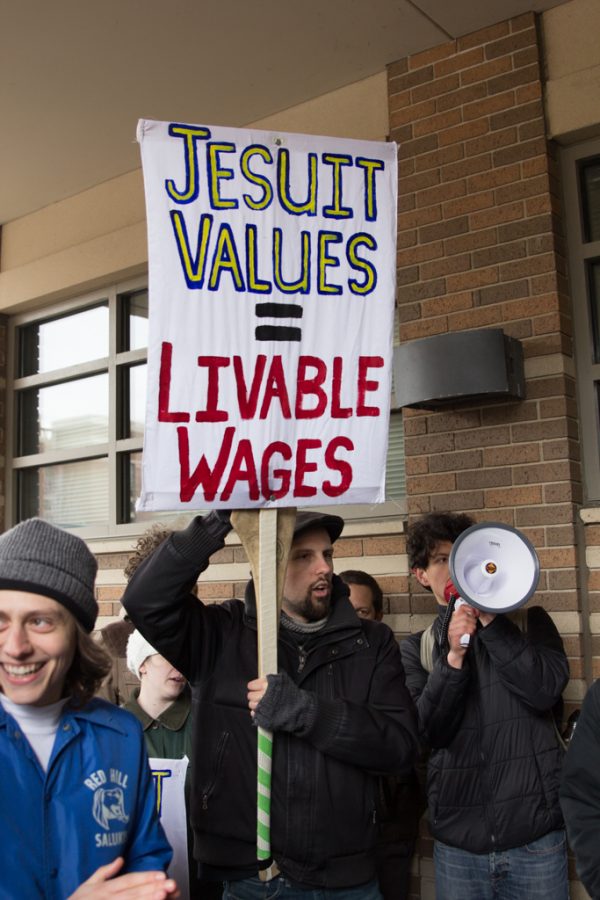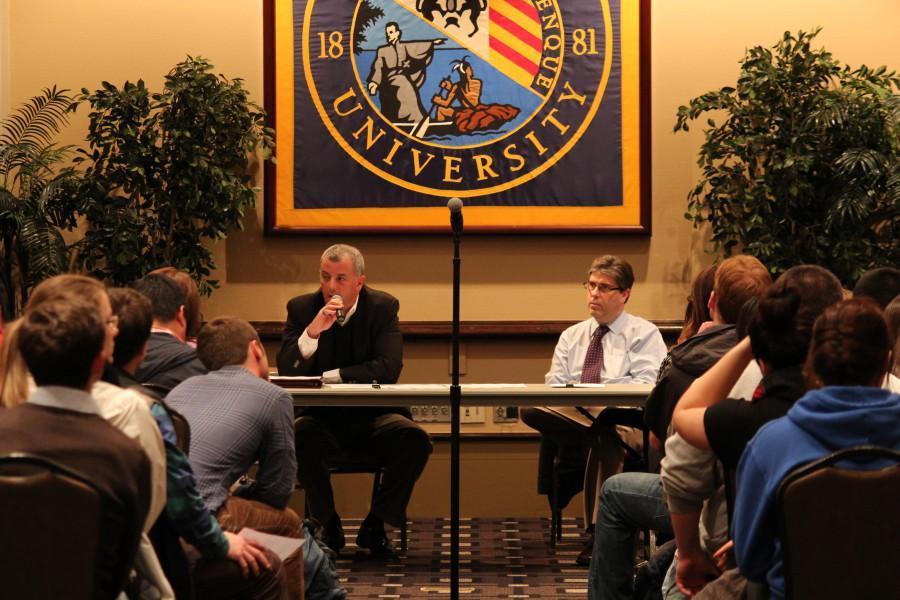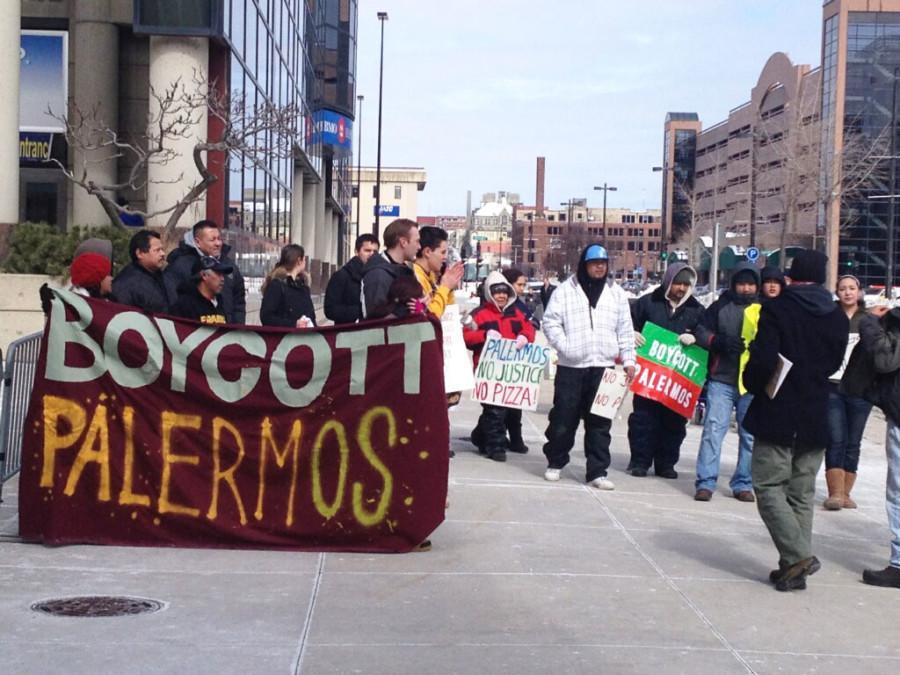For most Wisconsin residents, politically active or not, the past three weeks have been defined by protests, partisan battles and absent Democratic senators. This week looks to be no different.
Yesterday, the State Democratic Party of Wisconsin filed a complaint to the Government Accountability Board, accusing Walker of violating ethics and campaign finance laws. This complaint was a result of a prank phone call the governor received from a man posing as one of his highest campaign donors.
The complaint cites six allegations against Walker. One point focuses on the legality of requesting political contributions from his office in the state capitol. Others refer to his statement during the prank call about planting “troublemakers” outside the capitol to incite violence, as well as 1,500 lay-off notices to public employees merely intended to send a message to absent Democratic senators.
Walker could not be reached for a statement regarding the complaint.
Graeme Zielinski, communications director for the Democratic Party of Wisconsin, said they issued the complaint to hold the governor accountable for his actions.
“All it took was a prank phone call to spill the beans,” Zielinski said. “It showed this entire thing has nothing to do with balancing the budget … it’s just about busting the unions.”
Zielinski also said Walker has still not convinced the public he is speaking truthfully, and thus is struggling to react to criticism in a professional manner. He said this was especially evident regarding yesterday’s request to meet from Senate Minority Leader Mark Miller (D-Monona).
The letter, which asked to schedule a meeting with Walker and Senate Majority Leader Scott Fitzgerald (R-Juneau) to discuss possible compromises, was refused by both.
At a press conference yesterday afternoon, Walker said Miller stands in the way of compromise, since he will not allow his fellow Democratic senators to return to the state.
“Sen. Miller is misleading the public, just like he misled us,” Walker said at the press conference.
Fitzgerald echoed the governor’s words in a written response to Miller, in which he said Wisconsinites deserve better than the 14 Democratic senators’ media stunt.
“While we wait for you and your colleagues to finally show up, Senate Republicans continue to stand ready to do the job we were elected to do here in Wisconsin,” Fitzgerald said in the letter. “I hope you are enjoying your vacation, and your vacation from reality.”
The reality Fitzgerald refers to is the potential recall of state senators and the lay-off notices of 1,500 public employees if the Democrats do not return to Wisconsin within the next week and a half.
At this time, there are 16 eligible senators for recall — eight Democrats and eight Republicans. Although there are 33 state senators total, only senators who have been in office for more than one year are eligible for recall.
In order to recall a state official, enough petition signatures must be attained to account for 25 percent of the total vote of the governor’s race during November’s election in each district. Petition organizers have 60 days to collect signatures, with a primary or general election occurring in the subsequent weeks.
Although the last Wisconsin state official to be recalled was then-Sen. Gary George in 2003, Zielinski feels there is a strong possibility multiple senators will be recalled in the upcoming months. He said a lot of “grassroots anger” exists and people already want change.
Julia Azari, an assistant professor of political science, agreed that recalls are very likely, and called the past weeks an “exceptional political moment.” She said the process of recalling an official allows voters more influence on the government.


